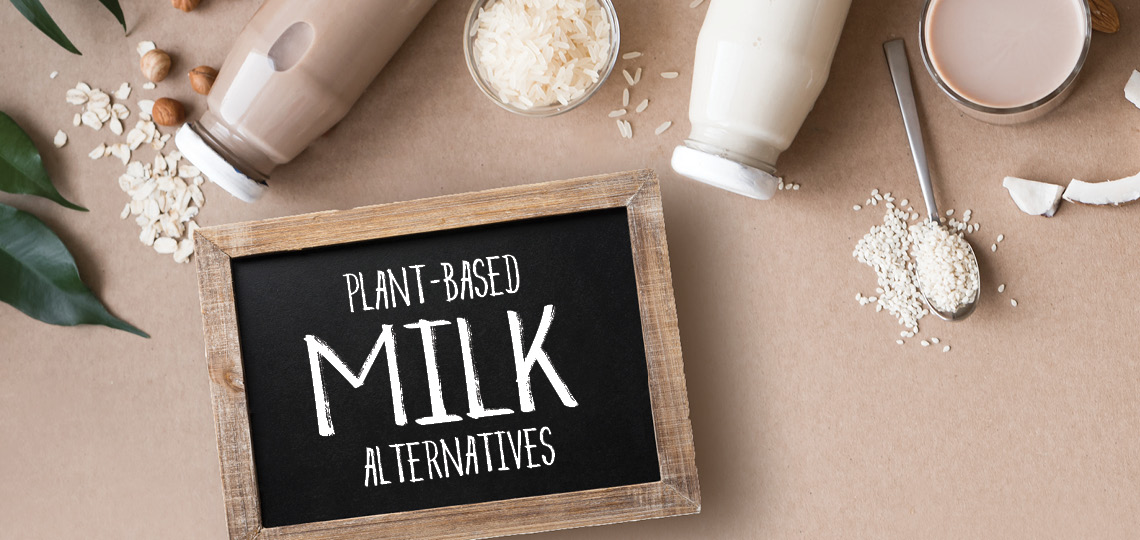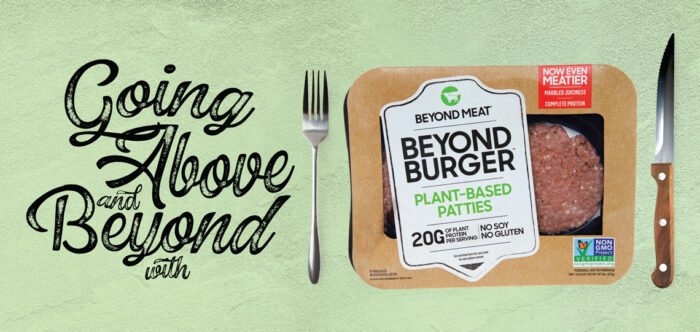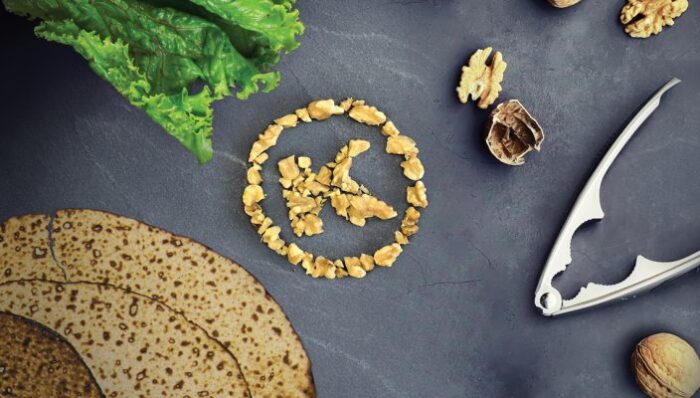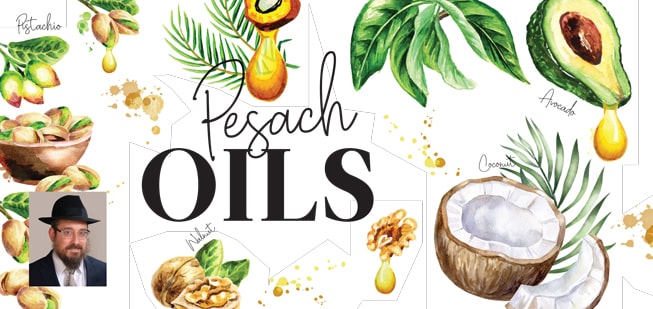WHAT ARE PLANT-BASED MILK ALTERNATIVES?
Plant-based “milk” is a water-based plant extract that is produced to look like conventional milk and serve as a replacement in coffee, cereal, recipes, and all places traditional milk is used. Plant-based milk alternatives are available in any supermarket and are a fast-growing category in the food industry. They appeal to those who are lactose intolerant, have dairy allergies, follow vegan diets and for the potential pareve status that appeals to kosher observant consumers. There are about seventeen different types of plant-based milk alternatives produced globally, from various types of grains, legumes, nuts and seeds. The production process for most are very similar. In this article, we’ll focus on the most popular options: almond, oat, soy, rice and coconut.
HOW ARE PLANT-BASED DAIRY ALTERNATIVES PRODUCED?
The first step in the process is to produce a base from the raw materials.
Soy milk base is produced from soy beans that are cleaned, dehulled, soaked in water, and then ground and filtered, leaving a liquid base. Coconut and almond milk bases are produced by grinding the raw materials until they become liquid and then cooling them from the friction heat that is generated in the grinding process. Rice and oat milk bases are produced by grinding the raw materials, mixing them with water, and then treating with enzymes to break down the starch and form a smoother mixture.
The base can be made into a “milk” by diluting it with water and mixing it with various ingredients to improve the flavor. Sugars or sweeteners can be added for sweetness, gums for thickness and texture, and vitamins and minerals can be added to match the nutritional value of conventional milk (milk itself is usually fortified with vitamins).
Once mixed, the mixture is homogenized (passes through a machine that breaks the particles down for a smoother texture) and then pasteurized. It can go through a regular pasteurization at or about 161℉, or it can be ultra-pasteurized at 280℉. Ultrapasteurized products usually have an extended shelf life and can be shelf stable (does not need refrigeration until opening). After the pasteurization process, the drink is cooled and packaged.
To create a plant-based “ice cream”, the base is mixed with additional ingredients to create the desired dessert base, homogenized, pasteurized, and cooled down. At this point, it is transferred to a flavor vat to be mixed with flavors, then filled into containers and frozen. During the filling process, inclusions such as chocolate chips and nuts can be mixed in. If desired, the product can be extruded into a shape or into molds around a stick, and then frozen and covered with chocolate or other toppings to make dessert bars. The frozen dessert can also be extruded on top of a cookie and then covered by another to create a dessert sandwich, which is then frozen and packaged.
Yogurt alternatives are produced by mixing the base with various ingredients, pasteurization, cooling and then the addition of live cultures to ferment the mixture. This product is then pumped into a tank to be mixed with flavors and fruit bases, and then filled into a cup and packaged.
ARE PLANT-BASED DAIRY ALTERNATIVES KOSHER?
The main concern for the kashrus of these products is the equipment. While the extraction equipment used to produce the bases are typically dedicated to plant-based extraction, it is very common for the rest of the equipment used to pasteurize the product to be shared with dairy and non-kosher products. Many of these facilities process non-kosher products and even serious treifos such as chicken- and meat-based soups that can compromise the status of the equipment. Dairy alternative products always require a reliable certification to ensure that the equipment is dedicated to kosher or pareve, or that they are kashered properly when necessary. Many of these types of products are produced in dairy manufacturing
plants that produce the “real” dairy products, and are therefore certified as Kosher Dairy or Dairy Equipment.
Even when a company only sells plant-based products that is not a guarantee that the equipment is dedicated since co-manufacturing facilities can be used and these facilities produce for many different customers.
All of the ingredients used in the process need to be kosher as well and pareve if the finished product is certified as pareve. Plant-based products should not be assumed to be Kosher for Passover unless specifically certified as such. The kosher certifying agency will make sure that the equipment is koshered before the Passover run, and that all the added ingredients are kosher for Passover. Consumers should look for the kosher designation alongside the kosher symbol to determine the kosher status of product, and not to rely on the packaging’s claims. One classic example is non-dairy creamers, which commonly contain sodium caseinate, a milk derivative and halachically dairy ingredient, but is labeled as nondairy under the FDA guidelines. People who are makpid on Pas Yisroel should be careful to verify that the frozen dessert sandwiches are Pas Yisroel.
MARIS AYIN
The Rema states in Yoreh Deah 87:3 that the custom is to permit adding chicken to milk made from almonds, since the prohibition of mixing milk and chicken is only a Rabbinic prohibition. However, since mixing milk and meat is a Torah prohibition, almonds should be placed next to the serving dish when serving almond milk with meat, to avoid maris ayin. The Shach argues that the concern for maris ayin applies even for a Rabbinic prohibition, and requires that almonds be placed near the serving dish for both chicken and meat.
The container of non-dairy milk should be displayed when the “milk” is cooked or served with any type of
meat or chicken1. The current minhag is not to require this with other dairy alternative products such as pareve ice cream or margarine (butter replacement), which are not mentioned in the Shulchan Oruch, since these non-dairy products are very popular and it is well known that these products can be pareve2.
ראה בפתחי תשובה )פז, י( ופרי מגדים )ש”ד פז, ו( 1
שפסקו שאין חשש מראית עין בבית אלא בסעודות גדולות.
ת יביע אומר יורה דעה ו סימן ח ובמשנה 2 » ראה בשו
הלכות חלק ה סימן צו.
Rabbi Hendel is a member of the OK Kosher Vaad HaKashrus.












